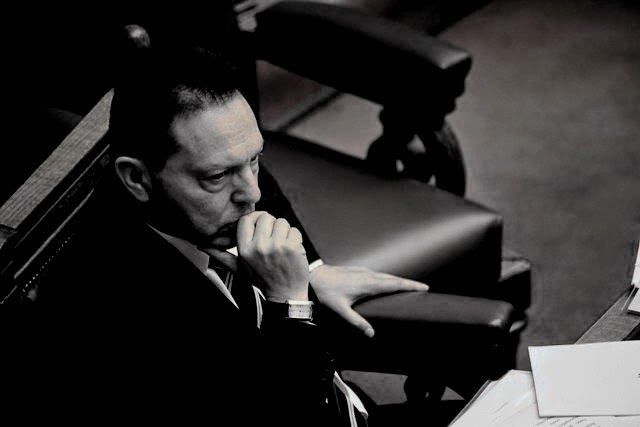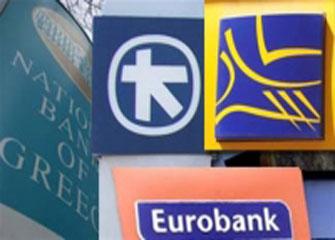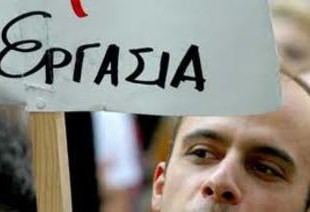By
BRUSSELS — The central bank of Greece warned on Wednesday that failure to reach a deal in the country’s long-running debt crisis would result in a default on its bailout loans and economic turmoil.
The rare public statement by the Bank of Greece came on the eve of the latest meeting of European officials, aimed at quelling the escalating crisis. Eurozone finance ministers were set to gather in Luxembourg in an atmosphere of emergency as they faced the prospect that Greece could become the first to fall out of the 19-country bloc in the European Union that shares the euro currency.
The declaration by the Greek central bank appeared to be an attempt to accentuate concerns about the worsening rift between Athens and its international creditors. There are only two weeks to go before the current Greek bailout program expires and a giant repayment to the International Monetary Fund falls due.
No deal between the sides “would mark the beginning of a painful course that would lead initially to a Greek default and ultimately to the country’s exit from the euro area and — most likely — from the European Union,” the Greek central bank said. That could lead to an “acute exchange rate crisis” that “would send inflation soaring.”
A “deep recession” would follow, including “a dramatic decline in income levels, an exponential rise in unemployment and a collapse of all that the Greek economy has achieved” during its membership in the European Union and the single currency, the Greek bank said.
The goal of the current round of negotiations, underway since February, is to unlock billions of euros of frozen bailout funds for Greece to pay salaries and to service its bailout loans. But those talks have deadlocked while the leftist government in Athens resists overhauls to its tax and pension systems that it says would renege on its promises to ease years of austerity.
Werner Faymann, the chancellor of Austria, told the public broadcaster there that he would use a visit to Athens on Wednesday to push for a compromise between Greece and its lenders and to assure the Greek people “there is solidarity” with their plight.
But a senior European Union official suggested that chances of a breakthrough this week were negligible. “The ball, I think ministers will firmly conclude, is very firmly in the Greek camp,” said the official, who spoke on the condition of anonymity as is customary before meetings of eurozone ministers.
“There are so many gaps between the institutions and the Greek authorities,” the official said, referring to the three institutions overseeing Greece’s compliance with the terms of its bailouts — the European Commission, the European Central Bank and the International Monetary Fund.
There was “not only a fiscal gap” but also gaps “very much to do also with the structure of the tax system, with pensions,” the official said.
Prime Minister Alexis Tsipras of Greece repeated that his government would not yield to demands for pension cuts. “If Europe insists on reductions to pensions, it will have to bear the cost of a development that will not be pleasant for anyone,” he said.
He added that Greece still wanted an “honorable compromise” and would “assume the great weight of the political cost of implementing an agreement.” But if such a deal is not reached, he said, “I and the government will assume the responsibility of saying the big ‘no’ to the continuation of a disastrous policy for the Greek people.”
In Athens, the standoff continued to weigh on markets. The main stock index declined 3.2 percent, bringing its loss over the last month to more than 16 percent. Greek government bond yields climbed further into territory suggesting that investors expect default. But the tensions had little impact on the wider financial scene: The blue-chip Euro Stoxx 50 index was slightly lower, while the euro edged up against the dollar.
European Central Bank leaders in a Wednesday meeting decided to increase their emergency funding of Greek banks by 1.1 billion euros, or about $1.2 billion, according to two officials with direct knowledge of the matter who spoke on the condition of anonymity. The central bank has effectively been keeping the country’s financial system on life support with the funding. The sum is probably just enough to tide over Greek banks, which are under intense strain as nervous savers withdraw deposits.
The intensifying rift between Athens and the creditors on Tuesday prompted Jacob J. Lew, the United States Treasury secretary, to call Mr. Tsipras of Greece to be briefed on developments that could have repercussions across the financial system.
Large demonstrations against austerity in Greece have largely subsided under the leftist government. But a protest against the additional measures being sought by creditors was planned for Wednesday evening.
If ministers fail to reach some form of a deal with Greece on Thursday, there could be an emergency meeting of eurozone leaders in Brussels before a summit meeting of the 28 European Union leaders on June 25.
European Union diplomats said that one stopgap measure to head off further economic calamity was to extend the current bailout program for Greece one more time, perhaps until next year, but that myriad obstacles could stand in the way of that.
Reporting was contributed by David Jolly from Paris, Melissa Eddy from Berlin and Niki Kitsantonis from Athens.



















